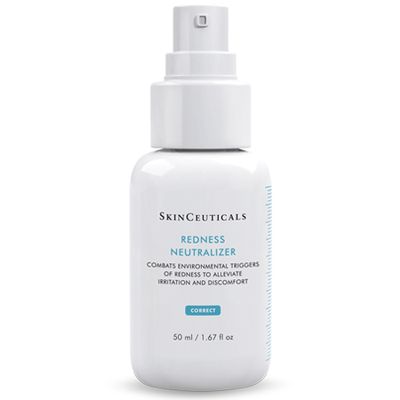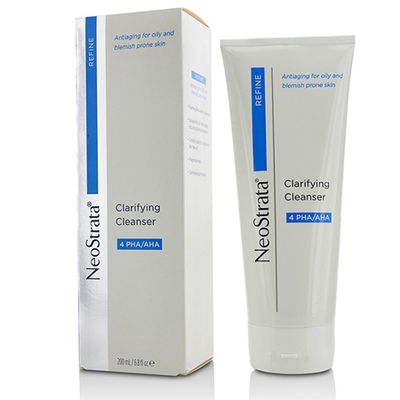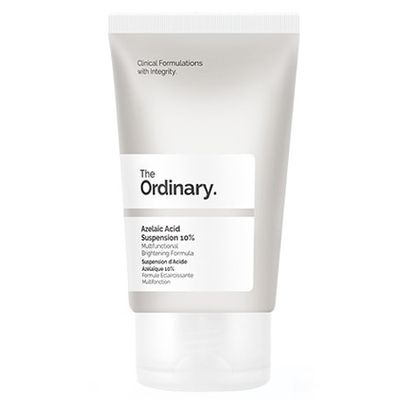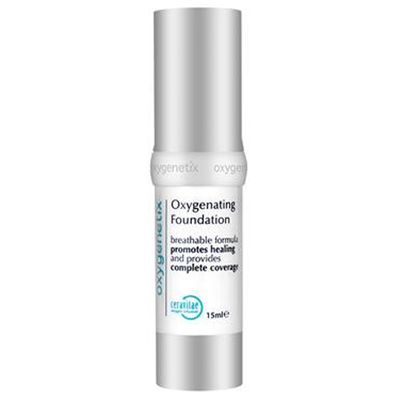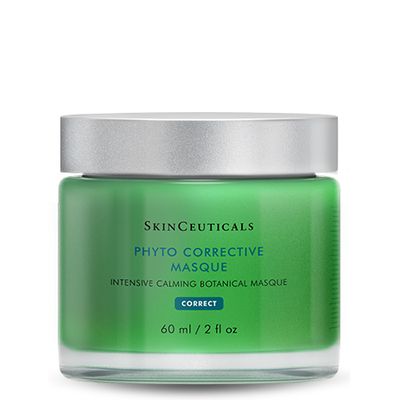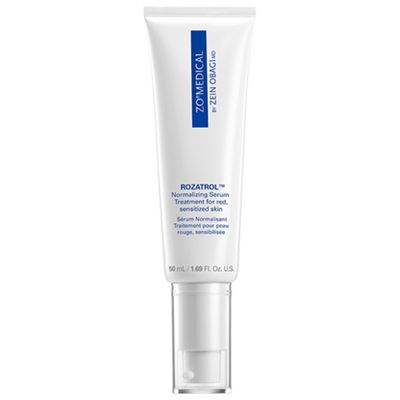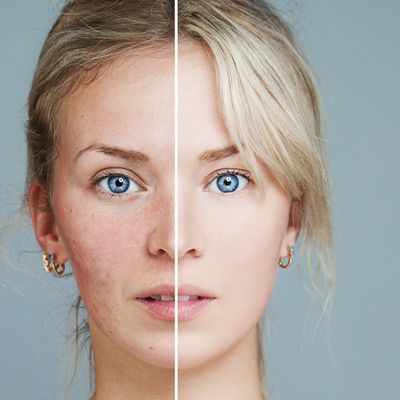
8 Expert-Approved Tips For Dealing With Rosacea
1. Symptoms Vary Hugely
“It’s important to note there are different levels of rosacea. Some people may only have a few symptoms like mild flushing, dilated blood vessels and swelling which comes and goes. Although these symptoms may not be too troublesome, as it progresses your redness and flushing may last longer and become more severe. You may develop pustules (pus-filled bumps) and red bumps on your skin. In some cases rosacea can cause permanent swelling and thickening of your skin, especially on the nose. Whatever stage you may be at, it’s really important to see a dermatologist so you’re in control of your condition and not using the wrong products, which could be making it worse.” – Dr Stephanie Munn, Dermatology Clinical Lead at Bupa UK
2. It’s All About Inflammation
“If you’ve been recommended products for your rosacea you may have noticed lots of them are also labelled suitable for acne sufferers. This is because both are inflammatory skin conditions. Rosacea and acne sufferers should avoid oil-based products as these can irritate your skin and worsen your condition. Instead, look for zinc-based cosmetics containing powdered formulas of silica, titanium dioxide and zinc oxide to camouflage redness and prevent irritation.
Always remember to clean and moisturise your face before applying your make-up. Try to use anti-bacterial brushes to apply your make-up as oil and bacteria on your fingers can irritate your skin.” – Dr Stephanie Munn
3. Try Supplements
“Research has shown harmful bacteria in your gut can interact with your immune system, leading to changes in the skin and triggering problems including redness, acne and rosacea. In this case, you could benefit from taking a probiotic – buy the best you can afford. It could also be worth boosting your vitamin C intake as well as taking zinc gluconate, which has been shown to ease the redness and inflammation associated with rosacea.” – Dr Frances Prenna Jones, Cosmetic Doctor
4. Ask About Medication
“Depending on the stage of your rosacea, it’s worth speaking to your GP or dermatologist about antibiotics, both oral and topical. Oral antibiotics such as tetracycline can be taken for three to six months and can really help sufferers, while studies suggest the use of topical ivermectin reduces the bacteria on the skin implicated in rosacea which is thought to affect the flora of our skin and therefore its pH and barrier function.” – Dr Frances Prenna Jones
5. Be Consistent With Skincare
“When it comes to managing rosacea, using good quality skincare is key and sticking with a consistent regime will help make your complexion less erratic and more manageable. Steer clear of common irritants such as parabens, artificial fragrances, mineral oils and sodium lauryl sulfate (a foaming agent often referred to as SLS) as well as artificial scents. However, don’t be scared of using acids on your skin – azelaic acid, in particular, can work wonders to soothe redness and other rosacea symptoms.” – Dr Stephanie Munn
6. Check Your Lifestyle Habits
“Beware of potentially aggravating factors such as spicy food, alcohol (particularly red wine), caffeine and other hot beverages, as all are common rosacea triggers. Your daily skincare regime is crucial, so it’s worth taking the time to find the right products. In my experience, many high street brands get it wrong; remember you’re better off keeping it simple.” – Dr Stefanie Williams, Specialist Dermatologist
7. Avoid the Sun
“Sun exposure can aggravate rosacea, so make sure your daily skincare regime includes suitable sun protection, ideally an SPF 30-50. While high protection products used to be heavy or sticky, there are now much lighter formulas on the market; my preference for rosacea sufferers is pure mineral filter products, but do ensure they come in a light-weight base. There are also special foundations that are more suitable than others – just remember to avoid oily, heavy products.” – Dr Stefanie Williams
8. Women Are More Likely To Be Affected
“Research suggests rosacea is more common in women than men and more likely to occur in fair-skinned people. Symptoms may appear in your early 20s but the usual age for symptoms to appear is in your 30s-60s.” – Dr Stephanie Munn
DISCLAIMER: We endeavour to always credit the correct original source of every image we use. If you think a credit may be incorrect, please contact us at info@sheerluxe.com.
